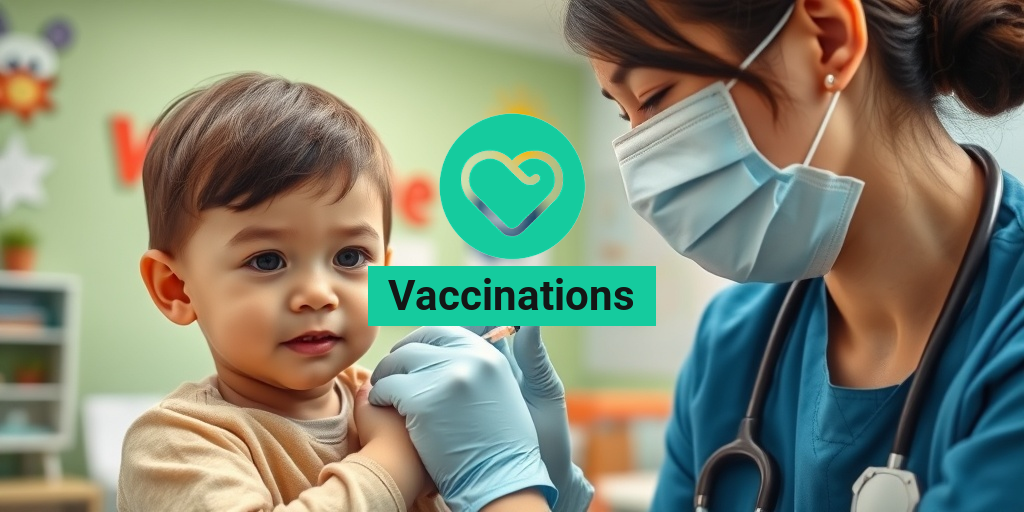What Are Vaccinations?
Vaccinations are a crucial aspect of public health, designed to protect individuals and communities from infectious diseases. They work by stimulating the body’s immune system to recognize and fight off specific pathogens, such as viruses and bacteria. When a person receives a vaccine, it introduces a harmless component of the pathogen—often a weakened or inactivated form, or a piece of its genetic material—into the body. This process helps the immune system develop a memory of the pathogen, enabling it to respond more effectively if exposed in the future.
The Importance of Vaccinations
Vaccinations play a vital role in preventing outbreaks of diseases that can lead to severe health complications or even death. Here are some key reasons why vaccinations are essential:
- Herd Immunity: When a significant portion of the population is vaccinated, it creates herd immunity, which protects those who cannot be vaccinated, such as infants or individuals with certain health conditions.
- Prevention of Disease Spread: Vaccinations help reduce the transmission of infectious diseases, leading to fewer cases and outbreaks.
- Cost-Effective Health Care: Preventing diseases through vaccination is often more cost-effective than treating them after they occur.
- Global Health Security: Vaccination programs contribute to global health security by controlling diseases that can cross borders.
Common Vaccinations
There are several vaccines recommended for different age groups and travel destinations. Some of the most common vaccinations include:
- MMR Vaccine: Protects against measles, mumps, and rubella.
- DTaP Vaccine: Protects against diphtheria, tetanus, and pertussis (whooping cough).
- HPV Vaccine: Protects against human papillomavirus, which can lead to certain cancers.
- Flu Vaccine: An annual vaccine that protects against seasonal influenza.
For travelers, specific vaccinations may be required or recommended based on their destination. For instance, vaccinations for Thailand and vaccinations for Vietnam often include vaccines for hepatitis A, typhoid, and Japanese encephalitis. It’s essential to consult with a healthcare provider or resources like Yesil Health AI for tailored vaccination advice.
Vaccination Schedule
Understanding the vaccination schedule is crucial for ensuring that individuals receive their vaccines on time. Vaccination schedules vary by age, health status, and geographical location. Here’s a general overview of the vaccination schedule for children and adults:
Childhood Vaccination Schedule
In many countries, the childhood vaccination schedule includes the following key vaccines:
- Birth: Hepatitis B vaccine.
- 2 Months: DTaP, Hib, IPV (polio), PCV13 (pneumococcal), and RV (rotavirus).
- 4 Months: DTaP, Hib, IPV, PCV13, and RV.
- 6 Months: DTaP, Hib, IPV, PCV13, and RV (depending on the vaccine type).
- 12-15 Months: MMR, varicella (chickenpox), and Hib.
- 4-6 Years: DTaP, IPV, MMR, and varicella.
Adult Vaccination Schedule
Adults also require vaccinations to maintain immunity and protect against diseases. Key vaccines for adults include:
- Tdap: A booster for tetanus, diphtheria, and pertussis, recommended every 10 years.
- Flu Vaccine: Recommended annually for all adults.
- Shingles Vaccine: Recommended for adults over 50.
- Pneumococcal Vaccine: Recommended for adults over 65 or those with certain health conditions.
Travelers should also be aware of specific vaccination requirements based on their destination. For example, vaccinations needed for Thailand may include hepatitis A and typhoid, while vaccinations for Egypt might include hepatitis A and B, as well as typhoid. Always check with a healthcare provider or visit Yesil Health AI for the most accurate and up-to-date information.
Conclusion
Vaccinations are a cornerstone of public health, providing protection against various infectious diseases. Staying informed about vaccination schedules and requirements is essential for individuals and families. Whether you’re planning a trip to Bali, Brazil, or China, ensure you are up-to-date on your vaccinations to safeguard your health and the health of those around you. Remember, prevention is always better than cure! 🌍💉
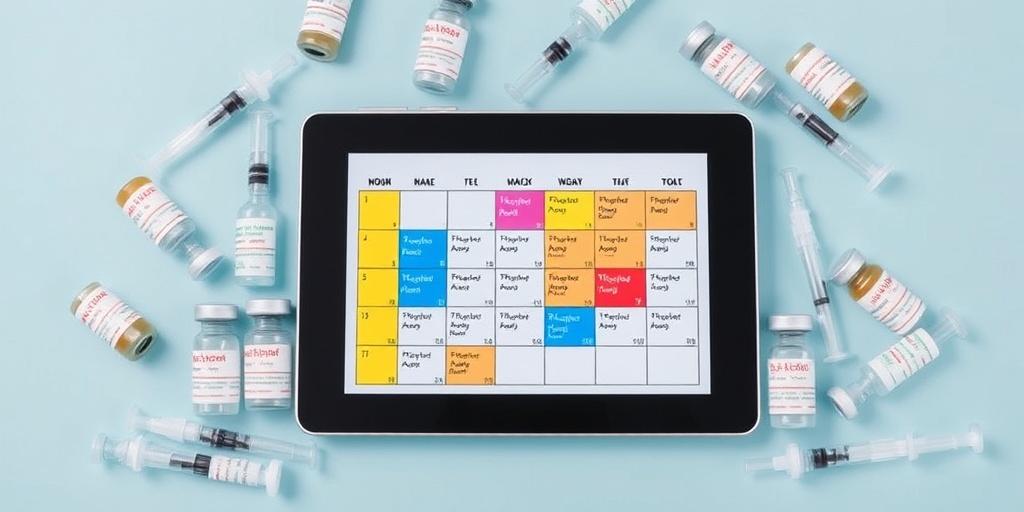
Types of Vaccines
Vaccinations play a crucial role in public health by preventing the spread of infectious diseases. Understanding the different types of vaccines can help individuals make informed decisions about their health and well-being. Here, we’ll explore the various types of vaccines available today.
1. Live Attenuated Vaccines
Live attenuated vaccines contain a weakened form of the virus or bacteria that causes the disease. These vaccines stimulate a strong immune response because they closely mimic a natural infection. Some common examples include:
- Measles, Mumps, and Rubella (MMR)
- Yellow Fever
- Varicella (Chickenpox)
While effective, live attenuated vaccines may not be suitable for individuals with weakened immune systems.
2. Inactivated or Killed Vaccines
Inactivated vaccines are made from viruses or bacteria that have been killed or inactivated. These vaccines cannot cause disease but still provoke an immune response. Examples include:
- Polio (IPV)
- Hepatitis A
- Rabies
Inactivated vaccines often require multiple doses to achieve full immunity.
3. Subunit, Recombinant, and Conjugate Vaccines
These vaccines contain only parts of the virus or bacteria, such as proteins or sugars, rather than the whole pathogen. This targeted approach can reduce side effects while still providing immunity. Notable examples include:
- Human Papillomavirus (HPV)
- Pneumococcal Vaccine
- Meningococcal Vaccine
Subunit vaccines are particularly useful for targeting specific diseases without the risk of causing illness.
4. Messenger RNA (mRNA) Vaccines
mRNA vaccines are a newer type of vaccine that use genetic material to instruct cells to produce a harmless piece of the virus, triggering an immune response. The most well-known examples are:
These vaccines have shown high efficacy rates and have been pivotal in controlling the COVID-19 pandemic.
5. Viral Vector Vaccines
Viral vector vaccines use a harmless virus to deliver genetic material from the target virus, prompting an immune response. This method is also utilized in some COVID-19 vaccines, such as:
- Johnson & Johnson’s Janssen Vaccine
- AstraZeneca Vaccine
Viral vector vaccines are designed to be effective with fewer doses, making them a valuable option in vaccination campaigns.
Vaccination Benefits
Vaccinations offer a multitude of benefits that extend beyond individual health. They are a cornerstone of public health initiatives worldwide. Here are some key advantages of getting vaccinated:
1. Disease Prevention
The primary benefit of vaccinations is their ability to prevent diseases. Vaccines have successfully eradicated or significantly reduced the incidence of many infectious diseases, including:
- Smallpox – Eradicated globally
- Polio – Near eradication in many parts of the world
- Measles – Reduced incidence due to widespread vaccination
By getting vaccinated, individuals contribute to herd immunity, protecting those who cannot be vaccinated, such as infants and immunocompromised individuals. 🌍
2. Economic Savings
Vaccinations can lead to significant economic benefits by reducing healthcare costs associated with treating diseases. Preventing outbreaks can save governments and healthcare systems millions of dollars in treatment and hospitalization costs. 💰
3. Travel Safety
For those planning to travel, certain vaccinations are essential to protect against diseases prevalent in specific regions. For example:
- Vaccinations for India may include Hepatitis A and Typhoid.
- Vaccinations for Thailand often recommend Japanese Encephalitis and Rabies.
- Vaccinations for Vietnam may include Hepatitis A and Typhoid.
Being vaccinated before traveling ensures a safer and healthier experience abroad. ✈️
4. Community Health
Vaccination programs contribute to the overall health of communities by reducing the spread of infectious diseases. When a significant portion of the population is vaccinated, it creates herd immunity, protecting those who are vulnerable. This collective effort is vital in controlling outbreaks and maintaining public health. 🏥
5. Peace of Mind
Finally, getting vaccinated provides peace of mind. Knowing that you are protected against serious diseases allows individuals to live their lives with less fear of illness. This sense of security is invaluable, especially for families with young children or elderly members. 😊
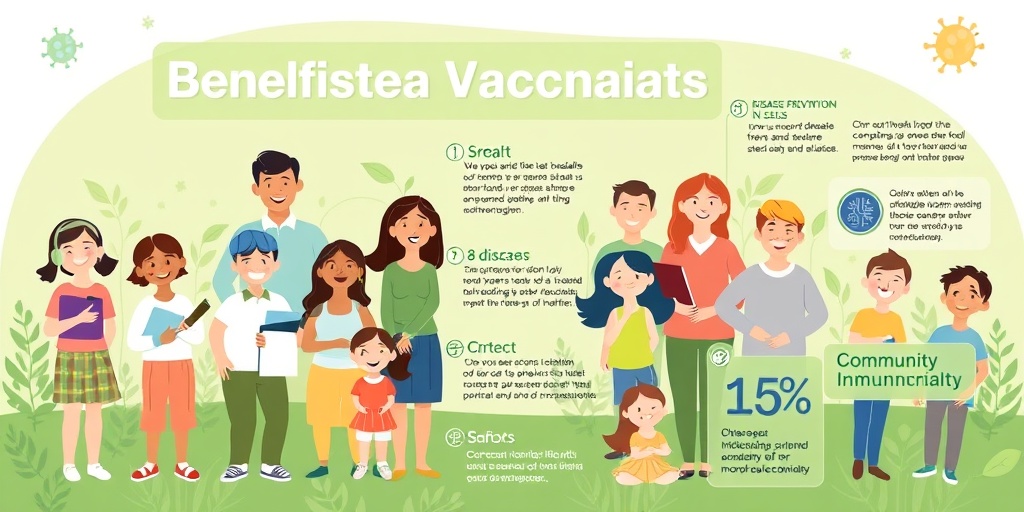
Vaccination Myths
Vaccinations are a crucial part of public health, yet they are often surrounded by myths and misconceptions. Understanding the truth behind these myths is essential for making informed decisions about your health and the health of your loved ones. Let’s debunk some of the most common vaccination myths.
Myth 1: Vaccinations Cause Autism
One of the most persistent myths is the belief that vaccinations cause autism. This misconception originated from a study published in 1998, which has since been thoroughly discredited. Numerous large-scale studies have found no link between vaccines and autism. In fact, the original study was retracted due to ethical concerns and fraudulent data. Vaccinations are safe and do not cause autism.
Myth 2: Natural Immunity is Better Than Vaccine-Induced Immunity
While it’s true that natural infections can lead to immunity, they often come with serious health risks. Vaccinations provide a safe way to develop immunity without the complications associated with the diseases they prevent. For example, diseases like measles and polio can lead to severe complications, including hospitalization and death. Vaccinations offer a safer alternative to natural immunity.
Myth 3: Vaccines Contain Harmful Ingredients
Some people worry about the ingredients in vaccines, believing they are harmful. However, the components in vaccines are present in such small amounts that they pose no risk to health. Ingredients like aluminum and formaldehyde are used in vaccines but are also found in everyday items. Vaccines are rigorously tested for safety and efficacy.
Myth 4: Vaccinations Are Only Necessary for Children
While childhood vaccinations are crucial, adults also need to stay up-to-date with their vaccinations. Many vaccines lose effectiveness over time, and adults may require booster shots to maintain immunity. Additionally, certain vaccines are recommended for adults based on age, health conditions, and travel plans. Vaccinations are important at every stage of life.
Myth 5: Vaccines Can Overwhelm the Immune System
Another common myth is that receiving multiple vaccines at once can overwhelm the immune system. In reality, the immune system is exposed to countless antigens daily, and vaccines are designed to work with the immune system, not against it. Vaccines are safe and effective, even when given together.
Vaccination Side Effects
Like any medical intervention, vaccinations can have side effects. However, it’s important to understand that the benefits of vaccination far outweigh the potential risks. Here’s a closer look at common side effects associated with vaccinations.
Common Side Effects
Most side effects from vaccinations are mild and temporary. They may include:
- Pain or swelling at the injection site: This is the most common reaction and usually resolves within a few days.
- Fever: A mild fever may occur as the body builds immunity.
- Fatigue: Some individuals may feel tired after receiving a vaccine.
- Headache: A mild headache can occur but typically subsides quickly.
Serious Side Effects
Serious side effects are extremely rare. Vaccines are continuously monitored for safety, and any adverse reactions are thoroughly investigated. Some potential serious side effects may include:
- Allergic reactions: Severe allergic reactions (anaphylaxis) are rare but can occur. Medical professionals are trained to handle such situations.
- Guillain-Barré Syndrome: This is a rare neurological disorder that has been associated with certain vaccines, but the risk is very low compared to the risk of complications from the diseases themselves.
What to Do If You Experience Side Effects
If you experience side effects after vaccination, most can be managed at home. Here are some tips:
- Apply a cool compress: This can help reduce pain and swelling at the injection site.
- Stay hydrated: Drink plenty of fluids, especially if you have a fever.
- Rest: Allow your body to recover by getting enough rest.
Always consult with a healthcare professional if you have concerns about side effects or if you experience anything unusual after vaccination. Remember, the benefits of vaccinations in preventing serious diseases far outweigh the risks of side effects. 💉
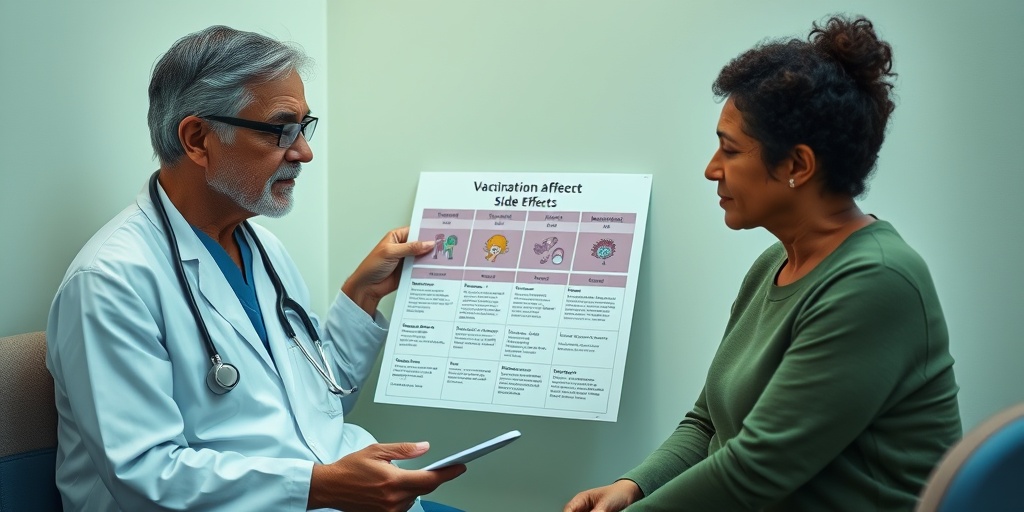
Vaccination for Children
Vaccinations play a crucial role in protecting children from various infectious diseases. They are a vital part of pediatric healthcare, ensuring that children develop immunity against potentially life-threatening illnesses. In this section, we will explore the importance of vaccinations for children, the recommended vaccination schedule, and common concerns parents may have.
The Importance of Vaccinations
Vaccinations are essential for several reasons:
- Prevention of Disease: Vaccines help prevent diseases such as measles, mumps, rubella, and whooping cough, which can have severe complications.
- Herd Immunity: When a significant portion of the population is vaccinated, it helps protect those who cannot be vaccinated, such as infants and individuals with certain medical conditions.
- Cost-Effective: Vaccinations reduce healthcare costs by preventing diseases that require extensive medical treatment.
Recommended Vaccination Schedule
The Centers for Disease Control and Prevention (CDC) provides a recommended vaccination schedule for children, which includes:
- Birth to 6 Years: Vaccines for hepatitis B, DTaP (diphtheria, tetanus, and pertussis), Hib (Haemophilus influenzae type b), IPV (inactivated poliovirus), MMR (measles, mumps, rubella), and varicella (chickenpox).
- 7 to 18 Years: Tdap (tetanus, diphtheria, and pertussis), HPV (human papillomavirus), and meningococcal vaccines.
It’s essential for parents to keep track of their child’s vaccination records and consult with their pediatrician to ensure timely vaccinations. 📅
Common Concerns About Vaccinations
Many parents have questions or concerns regarding vaccinations. Here are some common topics:
- Safety: Vaccines undergo rigorous testing for safety and efficacy before approval. Side effects are generally mild and temporary.
- Autism Myth: Numerous studies have debunked the myth that vaccines cause autism. The original study that suggested this link has been discredited.
- Natural Immunity: While some believe that natural infection provides better immunity, vaccines offer a safer way to build immunity without the risks associated with the diseases themselves.
Understanding the facts about vaccinations can help alleviate concerns and encourage parents to protect their children through immunization. 💉
Vaccination and Public Health
Vaccinations are not only crucial for individual health but also for the health of communities and populations. They play a significant role in public health initiatives aimed at controlling and eradicating infectious diseases. In this section, we will discuss the impact of vaccinations on public health, the concept of herd immunity, and the challenges faced in vaccination efforts.
The Impact of Vaccinations on Public Health
Vaccinations have led to significant declines in the incidence of many infectious diseases. Some key impacts include:
- Reduction in Disease Outbreaks: Widespread vaccination has led to the near-eradication of diseases like polio and smallpox.
- Lower Healthcare Costs: By preventing diseases, vaccinations reduce the burden on healthcare systems and lower overall healthcare costs.
- Increased Life Expectancy: Vaccinations contribute to longer life expectancy by preventing diseases that can lead to severe health complications or death.
The Concept of Herd Immunity
Herd immunity occurs when a large percentage of a population becomes immune to a disease, making its spread unlikely. This is particularly important for protecting vulnerable individuals who cannot be vaccinated. Key points about herd immunity include:
- Threshold Levels: The percentage of the population that needs to be vaccinated to achieve herd immunity varies by disease. For example, measles requires about 95% vaccination coverage.
- Community Responsibility: Vaccination is a collective responsibility. When individuals choose to vaccinate, they contribute to the health of the entire community.
Challenges in Vaccination Efforts
Despite the proven benefits of vaccinations, several challenges persist:
- Misinformation: The spread of misinformation about vaccines can lead to hesitancy and refusal to vaccinate.
- Access to Vaccines: In some regions, access to vaccines can be limited due to socioeconomic factors or healthcare infrastructure.
- Vaccine Supply: Ensuring a consistent supply of vaccines is crucial for maintaining vaccination programs.
Addressing these challenges requires collaboration between healthcare providers, governments, and communities to promote the importance of vaccinations and ensure that everyone has access to them. 🌍
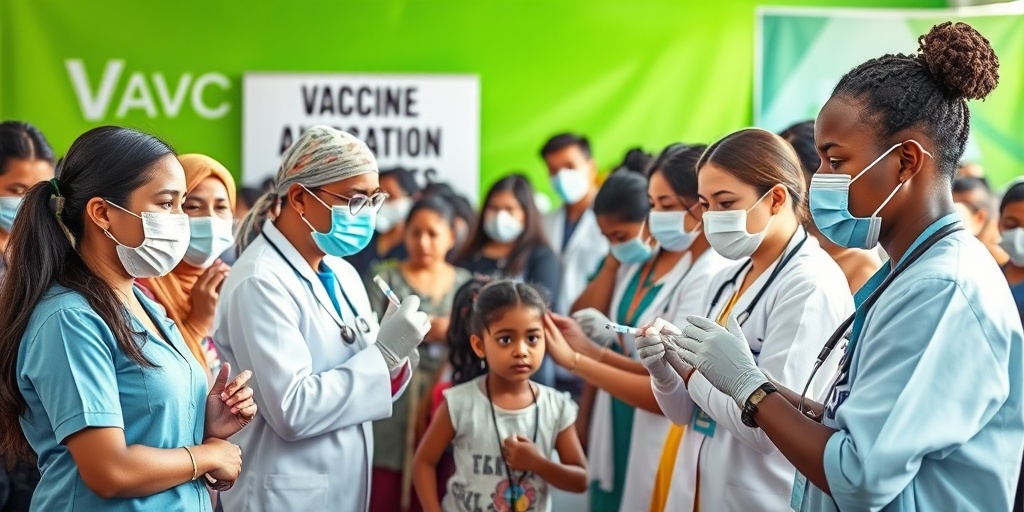
Frequently Asked Questions about Vaccinations
What are the benefits of getting vaccinated?
Vaccinations play a crucial role in protecting individuals and communities from infectious diseases. They help to:
- Prevent illness: Vaccines reduce the risk of contracting serious diseases.
- Protect vulnerable populations: Vaccination helps shield those who cannot be vaccinated, such as infants and individuals with certain health conditions.
- Achieve herd immunity: Widespread vaccination can lead to herd immunity, making it difficult for diseases to spread.
Are there specific vaccinations required for travel to different countries?
Yes, certain countries require specific vaccinations for travelers. For example:
- Vaccinations for Thailand: Hepatitis A, Typhoid, and Japanese Encephalitis are recommended.
- Vaccinations for Vietnam: Hepatitis A, Typhoid, and Rabies may be advised.
- Vaccinations for Egypt: Hepatitis A and Typhoid are commonly recommended.
- Vaccinations for Bali: Hepatitis A and Typhoid are suggested for travelers.
- Vaccinations for Brazil: Yellow Fever vaccination is often required.
How do I know which vaccinations I need before traveling?
To determine the necessary vaccinations for your travel destination, consider the following steps:
- Consult a healthcare provider: Speak with a doctor or travel medicine specialist.
- Check official health websites: Look for information from the World Health Organization (WHO) or the Centers for Disease Control and Prevention (CDC).
- Review travel advisories: Check for any health advisories related to your destination.
What are the common side effects of vaccinations?
Most vaccinations have mild side effects, which may include:
- Pain or swelling: At the injection site.
- Fever: A low-grade fever may occur.
- Fatigue: Feeling tired or lethargic is common.
Serious side effects are rare but can occur. Always consult with a healthcare professional if you have concerns.
Can I get vaccinated if I am pregnant or breastfeeding?
Many vaccinations are safe during pregnancy and breastfeeding, but it is essential to consult with your healthcare provider. They can provide guidance on which vaccines are appropriate for you during this time.
How often do I need to get vaccinated?
The frequency of vaccinations varies depending on the specific vaccine and your age. Some vaccines require booster shots after a certain period, while others may provide lifelong immunity. Regular check-ups with your healthcare provider can help you stay up to date.
Where can I get vaccinated?
Vaccinations are available at various locations, including:
- Healthcare providers: Your primary care physician can administer vaccines.
- Pharmacies: Many pharmacies offer vaccination services.
- Travel clinics: Specialized clinics can provide travel-related vaccinations.
What should I do if I miss a vaccination?
If you miss a scheduled vaccination, contact your healthcare provider to reschedule. It’s important to stay on track with your vaccination schedule to ensure optimal protection against diseases.

